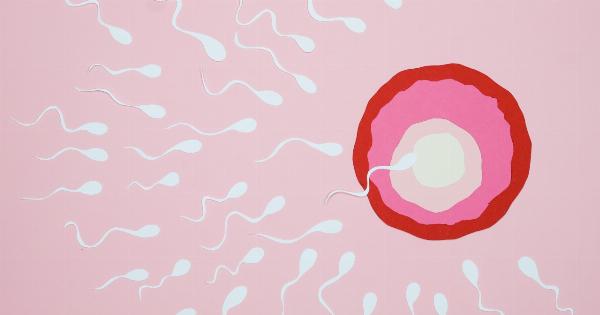Fertility issues can be a major concern for individuals and couples who desire to have children. Fortunately, advancements in reproductive technology have opened up new possibilities for those struggling with infertility.
Sperm freezing and in vitro fertilization (IVF) are two such innovative solutions that have significantly increased the chances of conception. This article aims to assess the efficacy of sperm freezing and IVF as effective fertility treatments.
Sperm Freezing
Sperm freezing, also known as sperm cryopreservation, is a method used to preserve sperm cells for future use. It involves collecting a semen sample and freezing it at extremely low temperatures (-196 degrees Celsius) using liquid nitrogen.
The frozen sperm can be stored for an extended period and thawed when needed for assisted reproduction techniques.
Benefits of Sperm Freezing
1.
Fertility Preservation: Sperm freezing allows individuals and couples to preserve their fertility for various reasons, such as cancer treatments, gender affirmation procedures, or military deployment, which may affect their reproductive abilities temporarily or permanently.
2. Increased Chances of Conception: By freezing sperm, individuals can store healthy sperm cells while they are still young and fertile.
This can be beneficial for individuals who plan to delay starting a family until later in life when fertility may be compromised.
3.
Safe Alternative for High-Risk Occupations: Sperm freezing provides a safe option for men working in high-risk occupations, such as military personnel or those exposed to hazardous environments, where the risk of infertility due to accidents or illnesses is higher.
Efficacy of Sperm Freezing
The success rate of using frozen sperm for assisted reproduction techniques is primarily dependent on factors such as the quality and motility of the sperm before freezing, the duration of storage, and the method used for fertilization.
1. Success Rates for IVF: When using frozen sperm for IVF, the success rates vary depending on the age and fertility of the female partner, the quality of the embryo, and the expertise of the fertility clinic.
On average, the success rate of IVF using frozen sperm ranges from 30% to 40% per cycle.
2. Success Rates for Intrauterine Insemination (IUI): IUI, a less invasive assisted reproductive technique, involves directly injecting the thawed sperm into the uterus.
The success rates for IUI using frozen sperm range from 10% to 20% per cycle, depending on various factors such as the age and fertility of the female partner and the quality of the sperm.
3. Long-Term Storage: The efficacy of sperm freezing over long periods is still under investigation.
However, there have been successful instances of pregnancies resulting from sperm frozen for more than 20 years, indicating the potential for long-term storage without significant loss in fertility potential.
In Vitro Fertilization (IVF)
IVF is a widely recognized assisted reproductive technology that involves fertilizing the egg with sperm outside the body.
The process typically consists of several steps, including ovarian stimulation, egg retrieval, fertilization, embryo cultivation, and embryo transfer.
Benefits of IVF
1. Overcoming Fertility Issues: IVF can help individuals and couples overcome various fertility issues, including blocked fallopian tubes, low sperm count or motility, advanced maternal age, endometriosis, or unexplained infertility.
2. Genetic Screening: IVF allows for preimplantation genetic testing, where embryos can be screened for genetic disorders or chromosomal abnormalities before the transfer, reducing the risk of passing on inheritable diseases to the offspring.
3. Donor Options: In cases where one or both partners have fertility issues, IVF provides an opportunity to use donor eggs, sperm, or embryos, expanding the chances of having a biological child.
Efficacy of IVF
The success rates of IVF vary depending on several factors, including the age and fertility of the female partner, the quality of the embryos, and the expertise of the fertility clinic.
On average, the success rates of IVF for women under 35 years old range from 40% to 50% per cycle. However, success rates decrease with advancing maternal age.
Comparing Sperm Freezing and IVF
Both sperm freezing and IVF are effective fertility treatments, but they cater to different needs and circumstances.
Sperm freezing is primarily used for fertility preservation, offering individuals and couples the option to have biological children later in life or after undergoing medical procedures that may affect their reproductive capabilities. On the other hand, IVF is a comprehensive assisted reproductive technique that addresses various fertility issues and can be used by individuals or couples with infertility concerns.
Conclusion
Sperm freezing and IVF are valuable fertility treatments that have provided hope and opportunities for couples struggling with infertility.
Sperm freezing offers the possibility of fertility preservation, while IVF addresses a wide range of fertility issues. The efficacy of these treatments depends on various factors, including the quality of the sperm or embryos used, the age of the individuals, and the expertise of the fertility clinic.
By assessing the efficacy of sperm freezing and IVF, individuals and couples can make informed decisions regarding their journey towards parenthood.





























